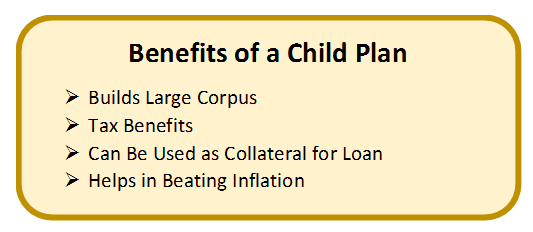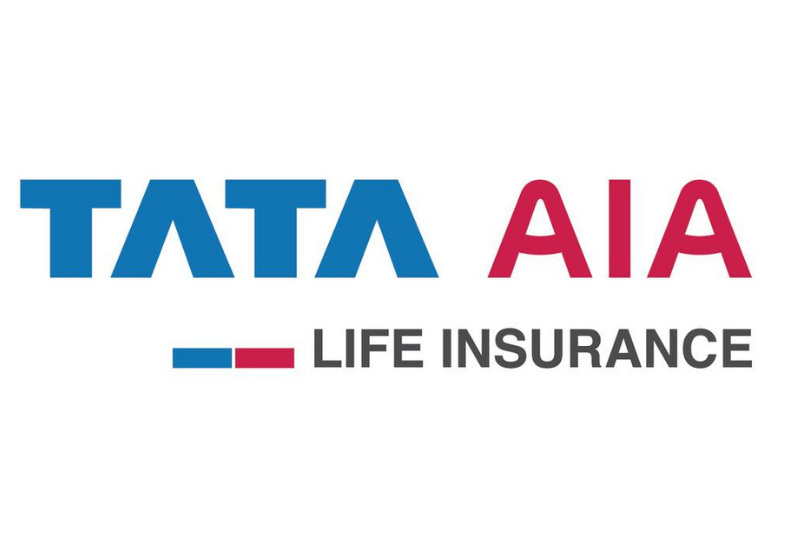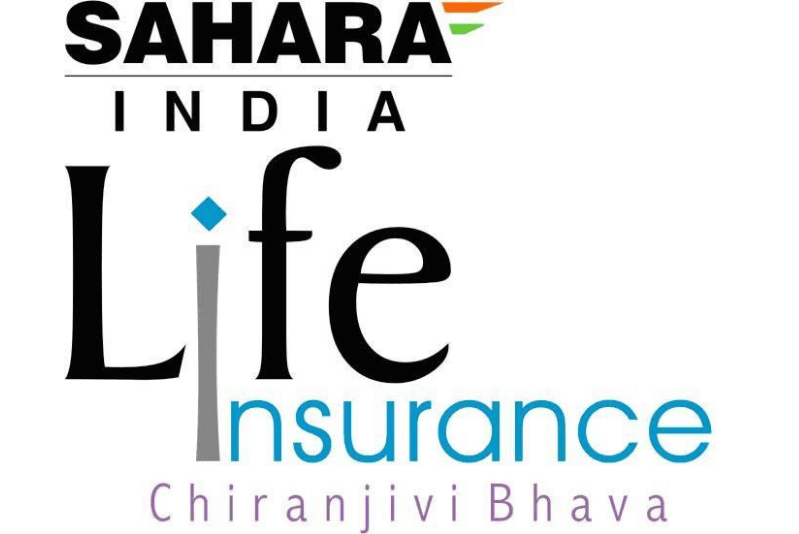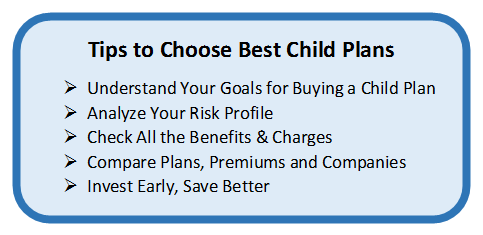Child Plan: A Detailed Overview
Child plan or child insurance plan is an insurance policy formulated to provide financial security for your child’s future. A child plan also acts as an Investment plan, as the amount invested in a child policy can be used to fulfil the future finances of your child during their crucial years, for instance, higher education or marriage. For example, an MBA or abroad education, or marriage are quite expensive these days. A child plan helps in easing the moment constraints and helps your child fulfil their dreams. Typically, a child insurance covers the life of the parent who has a minor child to take care of. However, the benefits of the plan are offered to the children when they reach a certain age and need the funds for their future needs. The funds can either be received in instalments or as a lump sum amount. In India, child insurance plan LIC is one of the most popular child investment plans among people. But, it is suggested to look for various child plans offered by the life Insurance companies in India and then choose the best child plan among them.

Types of a Child Plan
A child plan can be broadly categorised into two categories:
Children Traditional Endowment Plans
Investments under traditional endowment plans provide stable returns. The money you invest in a child plan is further invested in Debt fund to provide a better interest over the sum assured. An Endowment Plan gives one payout at the end of the contract, i.e., on maturity or in the case of death of the parent. Also, it is essential to keep a check on your bonuses and the interest applicable on your returns, like simple or compound interest.
Children Unit Linked Insurance Plans
These are Market-linked plans that provide volatile payouts. Under Unit Linked Insurance Plan (ULIP), money is invested in Equity Funds so the returns depend on the market fluctuations. It is suggested to invest in ULIPs for longer durations (like more than 10 years) to ensure better returns. Moreover, some of the Life Insurance companies that offer ULIP also give an option to customise different funds enabling you to have control over your investment.
Eligibility Criteria
The criteria for purchasing a child plan differ by company. A child plan can be purchased at any age between 18 and 21, with maturity ranging from 60 to 65 years. According to the schedule, the amount assured often varies. Some policies have no minimum requirements, while others have requirements of at least 5 to 10 times the annual premium.
Exceptions
In the event of death in certain circumstances, the insurance provider does not have compensation. These are referred to as exclusions. The following is a list of child plan exclusions.
- Suicide or self-harm.
- Alcohol or drug abuse.
- Criminal activities.
- Accident due to driving under the influence of toxic products.
- Participation in adventurous or risky sports.
Talk to our investment specialist
Documents Required for Child Plans
The following documents are needed to begin an insurance plan for your children:
- Proof of Residence: Any document will work, including a passport, driver's licence, or Aadhar card.
- Income Proof: Account statement or salary certificate must show the source of Income for paying premiums.
- Identity proof: Any document will work, including a passport, driver’s license, PAN Card or Aadhar card.
- Age Proof: You can submit a copy of your passport, birth certificate or education mark sheets.
- Policy Form: This form would have all of the plan's specifics as well as the terms you choose.
Why Should You Buy a Child Insurance?

One of the major benefits of a child plan is that it serves as both an insurance and investment opportunity. Apart from that, a child insurance plan has various other benefits. Some of them are mentioned below, take a look!
1. Builds Large Corpus
Child plan is highly beneficial in saving as well as growing money for your child’s future. Generally, child insurance plans have the capability of providing as much as 10 times of the invested amount. This amount can be used for your child’s education, marriage or during any medical emergency. The Power of Compounding applicable on these funds does wonders in growing the wealth. So, Investing in child plan ensures that there is no lack of money for your child's major milestones or sudden incidents.
2. Tax Benefits
Child insurance plans offer tax benefits as well. Under Section 80C of income tax Act, policyholders can claim tax deductions. If the premium paid in a particular year exceeds 10% of the basic insured amount, one can claim tax exemptions upto 10% of the sum assured amount. Additionally, under section 10 (10D), one can avail tax deductions on the interest earned on an investment if the premium paid per annum does not exceed 1/10th of the basic sum assured. However, in case of death, the funds disbursed are fully tax-free.
3. Can Be Used as Collateral for Loan
Your child insurance policy can be used as a Collateral for a loan after a certain lock-in period. This gives you an additional asset and thus enhances your financial standing. Child plans can also be used as a collateral for various child-related borrowings like that for marriage, education etc.
4. Helps in Beating Inflation
The money you save for your child does not grow with time and will give you the same value after a few years. This is why investing money is important. When you invest money in a child plan, your money not only grows with time but gives you financial support as well.
5 Premium Waiver Protection
Children's insurance plans, and most types of life insurance schemes, protect dependents. The child is the one who is being covered in this scenario. In the case of the insured parent's untimely death, the life insurance premiums from the child plan will be used to fulfil the child's immediate and daily needs and future needs.
6 Addressing Future needs
A child's future strategy also includes funds for higher education. Many child plans have a premium waiver feature that means the child plan continues in effect for the remainder of the insurance period in the event of the insured parent's untimely death. The life insurance company is responsible for paying the policy premium. The money invested so far is invested until the policy term ends, after which money is paid to the child to cover higher education costs.
How to select the best child insurance plan?
Choosing the right child insurance plan is important for the child's long-term development. This can be seen as a financial cushion in the event of an unforeseen event and as an investing tool for the child's benefit. Here is a listing of few deciding factors which should be considered:
Premium Amount
Particularly if the coverage amount and term of the plan are the same, the cost for different child plans varies due to a variety of reasons and particular insurer preferences. To make an informed decision, look at the various premium amounts offered by insurance companies.
Maturity Benefits
The best child plans are those that provide the most maturity benefits for the money spent in premiums. Even in case if the policyholder dies during the plan's lifetime or lives beyond it.
Additional Benefits
Aside from the base plan benefits, various providers provide optional benefits for a small cost. Furthermore, while some insurers may have a few incentives as part of the standard plan features, others may charge a fee for them. Comparing plans will assist you in selecting the right plan with the most incentives.
Claim Settlement Ratio
It indicates how many claims were ultimately granted out of all the claims submitted. The higher the percentage, the more likely it is that the claim will be resolved. Select a company that has a high lawsuit settlement rate.
Cover Amount
The amount of coverage is determined by the policyholder age, salary, and other factors. Compare different policies from different banks to find one that provides the most coverage for your child's future.
Policy Term
Choose a child plan for the longest term possible to ensure your child's financial security for as long as possible, even after he reaches maturity. Comparing multiple child plans will assist you in selecting a plan that provides the longest policy term at the most affordable price.
Terms and Conditions
Every insurer's terms and conditions differ, and it is up to you to determine whether or not you will benefit from a plan. Please study the details carefully and choose.
Child Insurance Claim Process
While selecting a child insurance plan, opt for an insurer who has a high claim Settlement Ratio. It ensures easy processing of claims at the time of crisis. Here are the steps you need to follow for claim processing:
- When an unfortunate event happens, try to reach out to your insurance company through a Call, email, or visiting the nearest branch without any delay.
- The next step is to fill up the claim form and the necessary details like policy number, nominees, date and cause of the incident, etc.
- Submit all the supporting documents as requested by the company.
- An assessor appointed by the company will verify your submitted details.
- If everything is okay and no further investigation is needed, then the claim request is accepted, and the amount is transferred within 30 days of submitting the documents.
Best Child Insurance Plan in India 2021
1. LIC New Children’s Money Back Plan
This is one of the best child plan for education and marriage. It is a participating, non-linked, traditional, and money-back plan. With the aid of the survival advantage, this plan is a customized plan that caters to various phases of your child's life, such as education, marriage, and others. During the policy term, it also provides risk coverage for children.
Features
- The LIC child plan has a premium waiver rider that guarantees a waiver on future premiums in the case of the proposer's death.
- This LIC child plan allows for a loan to be made available.
- Monthly, half-yearly, quarterly, or yearly premiums are available.
- At the time of purchase, the maturity value would be equal to the base amount guaranteed.
- It is a bonus-eligible participating plan with a fee charged for a set period of time.
- Following the attainment of 18 years of age, the policy will vest in the name of the kid who is the life guaranteed, who will then become the policyholder
- The plan has a tax benefit on both the premium charged and the claim earned.
2. LIC Jeevan Tarun
If you are looking for education insurance plans, you can move ahead with this one. LIC Jeevan Tarun is a non-linked participating Limited premium payment plan for children that provides savings and life insurance benefits. The insurance plan enables you to provide for your child's higher education, hostel fees, and other expenses.
Features
- It provides a variety of premium payment options.
- It's a traditional child plan that includes the Endowment Plan's benefits and a money-back option.
- It includes a premium waiver rider for LIC.
- Only when a plan's surrender value has been reached can an individual take out a loan against it.
- Policyholders have a 15-day free lock-in period, after which they can return the policy if they wish
3. Aditya Birla Sun Life Vision Star Child Plan
This is a traditional, participating child plan that provides periodic guaranteed payouts. This insurance provides you with tailored policies to meet your child's evolving needs, from career choices to hobbies and interests.
Features
- It is a traditional child plan with an inbuilt Accidental Permanent total disability benefit.
- The premium payment options are monthly, quarterly, semi-annual, and annual.
- The policy is available to people aged 18 to 55.
- The minimum sum assured is 1 lakh.
- The maximum maturity age is 75 years old.
- The policy term options available are 10, 15, and 20 years.
- In the event of the policyholder's death, the amount insured will be paid to the nominee. Although new premium payments cease, guaranteed payouts on scheduled dates continue.
- If the insured lives to maturity, the guaranteed bonuses earned up to that stage, as well as any terminal bonuses, are paid out.
- If you stop paying premiums after three years of uninterrupted payments, your policy will not Lapse. It is also operating on a reduced paid-up Basis.
- Take out a loan against this insurance contract for up to 85% of the policy surrender value.
4. SBI Life- Smart Champ Insurance Plan
A traditional participating child insurance plan, SBI Life – Smart Champ Insurance, assists in protecting your child's educational needs. After your child turns 18, you will enjoy smart benefits in four equal annual instalments. It offers a variety of benefits like security, reliability and flexibility.
Features
- After the child turns 18, Guaranteed Smart Benefits are paid in four equal annual instalments.
- On the death of the policyholder, future premiums are waived off, and the policy proceeds to accrue a bonus.
- Premium payment terms available are flexible – single, regular, and limited.
- Section 80C allows you to deduct up to Rs. 1,50,000 in life insurance premiums from your Taxable Income per year. In this way, tax benefits are available for this plan.
5. Bajaj Allianz Young Assure
Bajaj Allianz Life Insurance Co. Ltd. was founded in 2001 as a joint venture between Bajaj Finserv Ltd and Allianz SE. It has been in use for more than a decade. The Bajaj Allianz Young Assure Plan is one of the company's life insurance plans.
Features
- It's a traditional participating child insurance plan, which means that the payments are dependent on the success of the participating fund.
- It has two premium payment options: daily customers must pay during the policy period, and exclusive customers must pay only throughout the policy term.
- Customers have the option of selecting the Guaranteed Maturity Benefit (GMB).
- The premium for this plan is determined using your age, policy term, and premium payment term.
- In the case of an accidental disability benefit, the insurer may pay future premiums on behalf of the policyholder.
- Maturity benefits are distributed over a set period of time, ranging from 3-7 years.
- Guaranteed Maturity Benefit (GMB), Guaranteed Additions, Interim Bonus, Vested Bonus plus, and Terminal Bonus are among the maturity benefits.
6. HDFC Life YoungStar Udaan
HDFC Life YoungStar Udaan insurance plan is a traditional participating insurance plan. This HDFC child education plan is perfect for parents who want to save for academic expenses, wedding expenses, and all miscellaneous and extracurricular expenses that occur during children's initial life.
Features
- It has provisions to meet academic expenses as well as miscellaneous or extracurricular expenses incurred during school or college.
- On maturity, a lump sum payment is made.
- There are 2 death options you can choose from. The traditional alternative is to pay the death benefit and then end the policy. When you choose the Classic Waiver option, the death benefit is charged, but the policy continues, and future premiums are waived.
- The payment period for insurance premiums is 7, 10 years, or the policy term minus 5 years.
- At the end of the year, the accrued bonus is available.
- Section 80C and Section 10(10D) of the Income Tax Act of 1961 included tax benefits.
Conclusion
A Child Insurance Plan makes sure your child's future is secure, even if you are not around. It gives your child a stable financial cover that any parent would wish for. So don't wait anymore! Set your priorities right, select a child plan as per your requirements and insure your child's future today!
All efforts have been made to ensure the information provided here is accurate. However, no guarantees are made regarding correctness of data. Please verify with scheme information document before making any investment.












